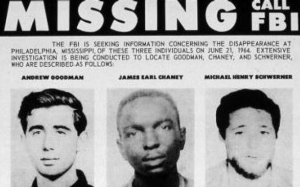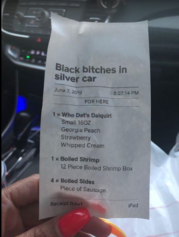
With new laws requiring citizens to show IDs before they can vote and limiting weekend and early voting, states like Mississippi, North Carolina and Texas have caused many of the volunteers who fought for voting rights during Freedom Summer to question whether the nation is trying to turn back the advances gained as a result of their efforts.
The brutality unveiled by the Freedom Summer and the murders of three civil rights workers—James Chaney, Andrew Goodman and Michael Schwerner—exactly 50 years ago to this day, undoubtedly moved to the passage of the 1965 Voting Rights Act,.
But in addition to 14 states passing voter ID laws over the past three years—following Barack Obama’s election as president, which was fueled by a surge of Black voters—a conservative majority of the U.S. Supreme Court last year voted to gut a key provision of the Voting Rights Act.
Stanley Nelson, director of the highly anticipated documentary “Freedom Summer” that premieres Tuesday at 9 p.m. on PBS, told CNN that the brave volunteers who risked their lives during that long ago summer are deeply disturbed by these latest developments.
“Everyone feels horrible about it,” Nelson says. “Everyone is so upset.”
According to CNN, his film “captures the idealism that inspired an interracial group of college students to journey to Mississippi for 10 weeks in the summer of 1964 to register African-American voters. But it also reveals what happened when that idealism collided with the casual brutality of white Mississippians who saw Freedom Summer as a ‘n****r communist invasion.'”
While authorities searched for her still-missing husband, Rita Schwerner, wife of murdered civil rights worker Michael Schwerner, told reporters at the time, “It’s tragic, as far as I’m concerned that white Northerners have to be caught up in the machinery of injustice and indifference in the South before the American people register concern. I personally suspect that if Mr. Chaney, who is a native Mississippian Negro, had been alone at the time of the disappearance, that this case, like so many others that have come before, would have gone completely unnoticed.”


